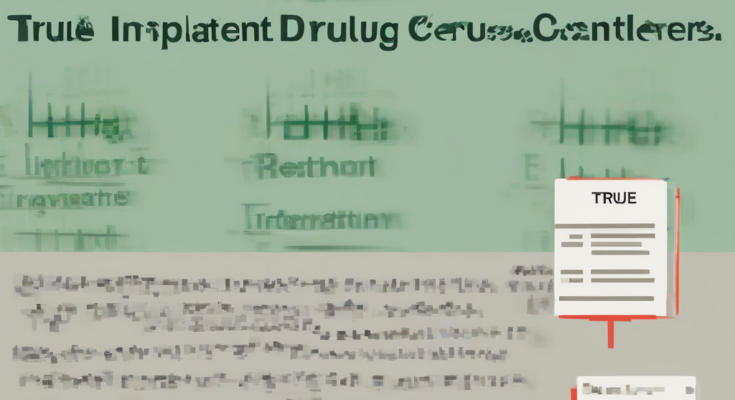Inpatient Drug Treatment Centers: A Comprehensive Guide
Inpatient drug treatment centers, also known as residential treatment centers, are facilities that provide intensive, around-the-clock care for individuals struggling with substance use disorders. These programs typically involve a structured living environment, group and individual therapy sessions, and a comprehensive approach to recovery that addresses the physical, mental, and emotional aspects of addiction.
Understanding Inpatient Drug Treatment
What is Inpatient Drug Treatment?
Inpatient drug treatment centers offer a structured and supportive environment for individuals seeking recovery from drug addiction. Unlike outpatient programs, which allow individuals to continue living at home and attend therapy sessions on a scheduled basis, inpatient treatment requires residents to live at the facility for an extended period.
Who Benefits from Inpatient Drug Treatment?
Inpatient drug treatment can be beneficial for individuals who:
- Have a severe substance use disorder that has significantly impacted their life.
- Are struggling to manage cravings and withdrawal symptoms on their own.
- Have a history of relapse despite previous attempts at recovery.
- Require a safe and structured environment to address their addiction.
- Have co-occurring mental health conditions that complicate their recovery.
Types of Inpatient Drug Treatment Programs
Detoxification
Detoxification, also known as detox, is the initial phase of inpatient treatment that focuses on safely managing withdrawal symptoms. It involves medical supervision and medication to alleviate discomfort and prevent complications. Detoxification typically lasts for a few days to a week, depending on the substance of abuse and the individual’s physical condition.
Rehabilitation
Rehabilitation programs follow detox and focus on addressing the underlying causes of addiction and developing coping skills to prevent relapse. These programs typically involve a combination of therapy, education, and activities designed to promote recovery. Rehabilitation programs can last for several weeks to months, depending on the individual’s needs and progress.
Long-Term Residential Treatment
Long-term residential treatment programs provide intensive and comprehensive care for individuals who require extended support and supervision. These programs often incorporate elements of both detoxification and rehabilitation, and they may last for several months or even years.
Specialized Inpatient Treatment
Some inpatient treatment centers specialize in treating specific populations or addressing specific needs. These programs may focus on:
- Teenagers and adolescents: Programs designed to address the unique challenges of substance abuse among young people.
- Women: Programs that consider the specific needs and experiences of women in recovery.
- People with co-occurring disorders: Programs that address both substance use and mental health conditions.
- Medically assisted treatment (MAT): Programs that utilize medications, such as methadone or buprenorphine, to aid in recovery.
The Inpatient Treatment Process
Admission and Assessment
The first step in inpatient treatment is admission and assessment. This typically involves a thorough evaluation of the individual’s medical and psychiatric history, substance use patterns, and personal goals. The assessment helps determine the appropriate level of care and treatment plan.
Therapy and Counseling
Therapy is a cornerstone of inpatient treatment. Individuals may engage in various forms of therapy, including:
- Individual therapy: Provides one-on-one support and guidance to address personal issues and develop coping mechanisms.
- Group therapy: Facilitates sharing and support among individuals with similar experiences. It can help build a sense of community and reduce isolation.
- Family therapy: Addresses the impact of addiction on family relationships and promotes communication and understanding.
- Cognitive-behavioral therapy (CBT): Helps individuals identify and change negative thought patterns and behaviors that contribute to substance use.
- Dialectical behavioral therapy (DBT): Teaches skills for managing emotions, improving relationships, and reducing impulsive behaviors.
Medication
Medication may be prescribed to manage withdrawal symptoms, reduce cravings, or treat co-occurring mental health conditions. The use of medication in inpatient treatment is carefully monitored and adjusted based on the individual’s needs and response.
Structured Activities
Inpatient treatment programs often include a variety of structured activities to promote recovery. These activities may include:
- Physical exercise: Improves physical health, reduces stress, and releases endorphins that can enhance mood.
- Creative arts therapy: Provides a safe outlet for expression and self-discovery.
- Life skills training: Develops essential skills for managing daily life, such as budgeting, cooking, and problem-solving.
- Educational workshops: Provides information about addiction, recovery, and resources.
Discharge and Aftercare
Upon completion of the inpatient treatment program, individuals transition to an aftercare plan that provides ongoing support and guidance to maintain sobriety. Aftercare may include:
- Outpatient therapy: Continues individual and group therapy sessions in a less intensive setting.
- Support groups: Provides ongoing support and connection with other individuals in recovery.
- Medication management: Ensures continued access to medication if necessary.
- Relapse prevention planning: Develops strategies to avoid relapse and manage potential triggers.
The Benefits of Inpatient Drug Treatment
Intensive Support and Supervision
Inpatient treatment provides a safe and structured environment where individuals can focus on their recovery without the distractions and temptations of daily life. The constant supervision and support of staff can help individuals manage cravings, prevent relapse, and develop healthy coping mechanisms.
Comprehensive Treatment Approach
Inpatient programs offer a comprehensive approach to recovery that addresses the physical, mental, and emotional aspects of addiction. They provide access to a wide range of services, including medical care, therapy, and life skills training, to support individuals in achieving lasting recovery.
Specialized Care for Co-Occurring Disorders
Many inpatient treatment centers specialize in treating individuals with co-occurring mental health conditions. By addressing both substance use and mental health issues, these programs can improve the overall effectiveness of treatment and promote long-term recovery.
Reduced Risk of Relapse
Research has shown that inpatient treatment can significantly reduce the risk of relapse. The intensive support, structured environment, and comprehensive care provided by inpatient programs can help individuals develop the skills and support they need to maintain sobriety.
Choosing the Right Inpatient Drug Treatment Center
Factors to Consider
When choosing an inpatient drug treatment center, it is important to consider several factors, including:
- Accreditation and licensing: Ensure the facility is accredited by reputable organizations and licensed by the state.
- Treatment programs: Choose a program that aligns with your individual needs and goals, such as detoxification, rehabilitation, or specialized programs.
- Therapists and staff: Look for a center with qualified and experienced therapists and staff who are compassionate and supportive.
- Location and environment: Consider the location and environment of the facility, as well as the amenities and activities offered.
- Cost and insurance coverage: Inquire about the cost of treatment and whether your insurance will cover the expenses.
Resources for Finding Inpatient Treatment
There are several resources available to help you find inpatient drug treatment centers:
- Substance Abuse and Mental Health Services Administration (SAMHSA): A federal agency that provides information and resources on substance use disorders.
- National Institute on Drug Abuse (NIDA): A federal agency that conducts research and provides information on drug addiction.
- State and local resources: Contact your state or local department of health or mental health to find resources in your area.
- Insurance provider: Check with your insurance provider for a list of approved inpatient treatment centers.
Conclusion
Inpatient drug treatment centers offer a safe and structured environment for individuals seeking recovery from substance use disorders. They provide intensive support, comprehensive treatment, and specialized care to address the physical, mental, and emotional aspects of addiction. Choosing the right inpatient treatment center can be an important step towards achieving lasting recovery.



